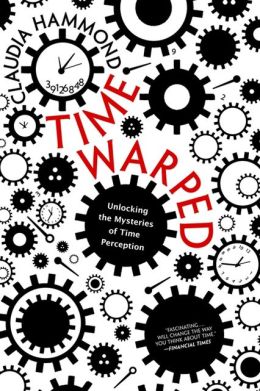Why Time Slows Down When We’re Afraid, Speeds Up as We Age, and Gets Warped on Vacation
by Maria Popova“Time perception matters because it is the experience of time that roots us in our mental reality.”
 Given my soft spot for famous diaries, it should come as no surprise that I keep one myself. Perhaps the greatest gift of the practice has been the daily habit of reading what I had written on that day a year earlier; not only is it a remarkable tool of introspection and self-awareness, but it also illustrates that our memory “is never a precise duplicate of the original [but] a continuing act of creation” and how flawed our perception of time is — almost everything that occurred a year ago appears as having taken place either significantly further in the past (“a different lifetime,” I’d often marvel at this time-illusion) or significantly more recently (“this feels like just last month!”). Rather than a personal deficiency of those of us befallen by this tendency, however, it turns out to be a defining feature of how the human mind works, the science of which is at first unsettling, then strangely comforting, and altogether intensely interesting.
Given my soft spot for famous diaries, it should come as no surprise that I keep one myself. Perhaps the greatest gift of the practice has been the daily habit of reading what I had written on that day a year earlier; not only is it a remarkable tool of introspection and self-awareness, but it also illustrates that our memory “is never a precise duplicate of the original [but] a continuing act of creation” and how flawed our perception of time is — almost everything that occurred a year ago appears as having taken place either significantly further in the past (“a different lifetime,” I’d often marvel at this time-illusion) or significantly more recently (“this feels like just last month!”). Rather than a personal deficiency of those of us befallen by this tendency, however, it turns out to be a defining feature of how the human mind works, the science of which is at first unsettling, then strangely comforting, and altogether intensely interesting.
That’s precisely what acclaimed BBC broadcaster and psychology writer Claudia Hammond explores in Time Warped: Unlocking the Mysteries of Time Perception (public library) — a fascinating foray into the idea that our experience of time is actively created by our own minds and how these sensations of what neuroscientists and psychologists call “mind time” are created. As disorienting as the concept might seem — after all, we’ve been nursed on the belief that time is one of those few utterly reliable and objective things in life — it is also strangely empowering to think that the very phenomenon depicted as the unforgiving dictator of life is something we might be able to shape and benefit from.